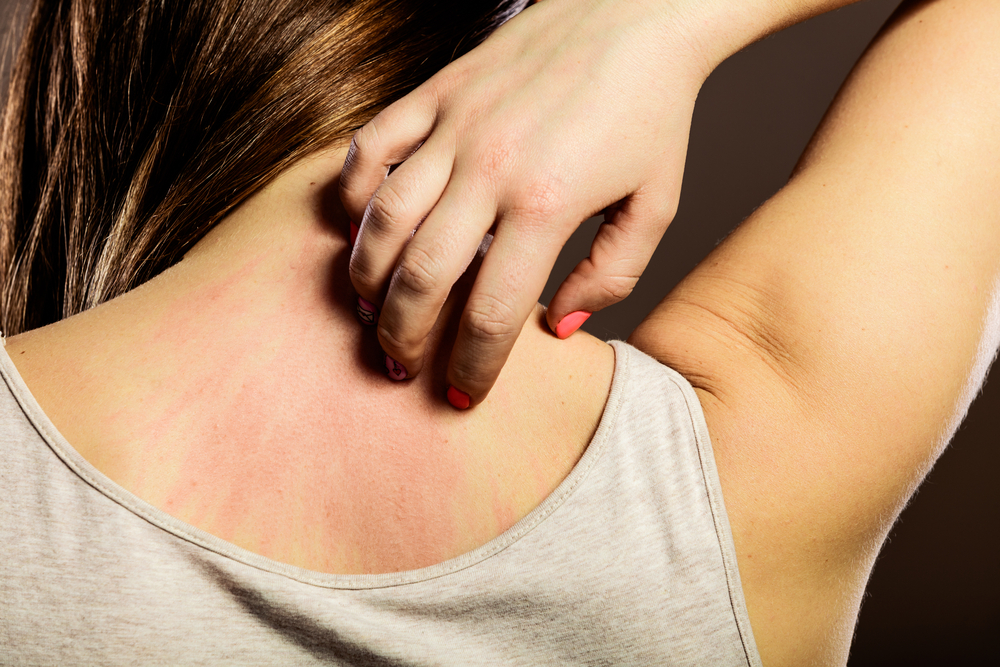Stress rashes often take the form of hives. Hives can appear anywhere on the body. Areas affected by hives are generally red, raised, and swollen. These blotchy areas can be in a small area or on an extensive areas.
Sometimes, these patches may connect to form big patches. These are typical histamine reactions with wheals and flare and can range in size from less than a centimeter to giant patches covering large areas of the skin.
Hives can also appear as general skin swelling that develops in one place on your body. This section of swelling may disappear and then appear somewhere else.
Areas affected by hives itch. one may also experience a tingling or burning sensation when touching the affected areas.
A single hive generally fades in few hours. But new hives may form as old hives disappear.
Though less common, your symptoms may persist beyond 6 weeks. If this happens, your hives are considered chronic.
Hives are often the result of immune system reacting to an allergen. Hives can also be caused by other factors, like a viral infection, illness, or environmental trigger. Stress is considered to be an environmental trigger.
The most common food allergens include:
- nuts
- wheat and other grains
- chocolate
- milk and milk products
- soy
- eggs
- seafood
- tomatoes
Other allergens are pollen, dog dander, and certain medications.
Other environmental triggers, other than stress, include:
- hot and cold temperatures
- sunlight
- water
- exercise
When stressed, it isn’t uncommon to experience a flare-up related to an existing skin condition. This is because body releases extra chemicals, like neuropeptides and neurotransmitters, when stressed.
These chemicals can change how body responds to various functions. This change in response can cause inflammation, sensitivity, and other discomfort to the skin.
What can be done:
- Epsom salt and baking soda bath in hot water
- Meditation, Yoga and other calming activities
- perform regular detox with Glutathione
- Balance hormones
- Far infra red sauna
- Check Yeast or Fungal infection and treat them if they are positive
Dr Kalpana Shekhawat M.D.
Functional Medicine Specialist

